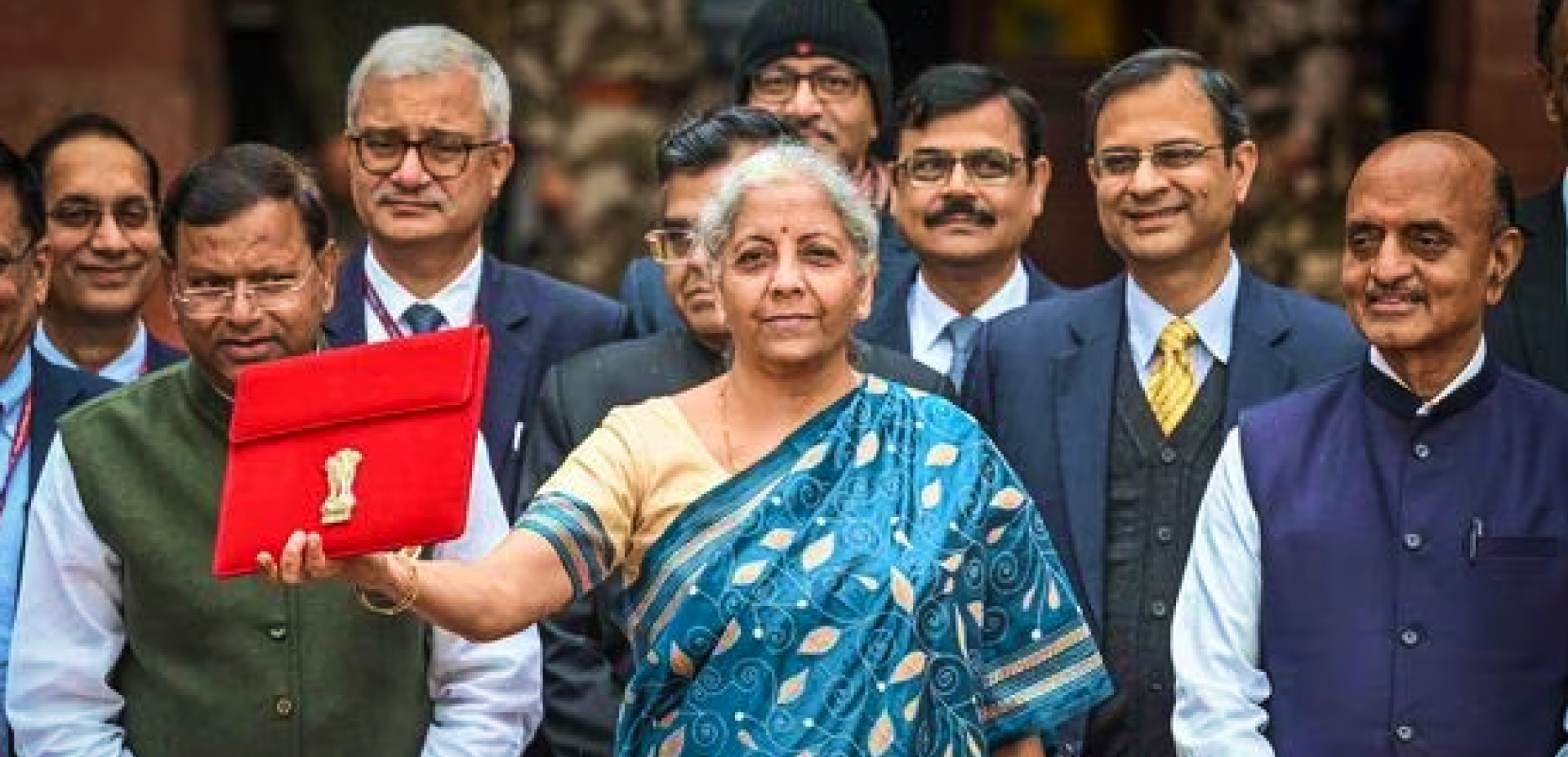Budget 2024: How Policy Shifts are Shaping the Future of Real Estate:
The Budget 2024, Announced by Finance Minister Nirmala Sitharaman on February 1, outlines a strategy focusing on social and infrastructure development. With a particular focus on a special housing plan for the middle class and substantial development in infrastructure, the budget aims for comprehensive growth and economic support. However, industry experts have important suggestions, such as tax exemptions and adjustments in fund size, to enhance the impact on the real estate sector. Let’s explore the main highlights and viewpoints from Budget 2024, keeping in mind policy shifts and urban development as crucial elements.
1. Housing Scheme for the Middle Class:
-
Significance of the Scheme.
The key focus of Budget 2024 is the government’s promise to introduce a special housing sector plan exclusively for the middle class. This initiative aims to empower this group by offering assistance for home ownership, helping to the different housing needs of the people. Manoj Joshi, the Secretary of Housing and Urban Affairs, emphasized the government’s commitment to helping the middle class acquire or build homes, especially those currently living in rental housing, slums, chawls, and unauthorized colonies.
-
Inclusive Development Vision.
The announcement is in line with the broader vision of inclusive development, considering housing as a fundamental element for improving the overall well-being of citizens. By extending support to those residing in rental housing or unauthorized colonies, the government aims to narrow the gap and make owning a home possible for a wider section of society.
-
Middle-Class Growth Forecast.
Estimates from various industries suggest that India’s middle class is set to nearly double, reaching 61% of the total population by 2047. This underscores the importance of the government’s initiative to assist this growing segment. The proposed affordable housing sector scheme is expected to play a pivotal role in fulfilling the goal of “Housing for All.”
-
PMAY and Expanded Assistance.
The ongoing Pradhan Mantri Awas Yojana (PMAY) Development initiative has already made significant progress in providing affordable housing.
2. Infrastructure Development:
-
Growth Potential.
The Budget’s focus on infrastructure development is evident in the identification of three new economic railway corridors under the PM Gati Shakti program. These massive projects have the potential to grow economic hubs and boost Urban development in Tier-2 and Tier-3 cities along their alignment. The allocation of 3.4% of GDP to infrastructure outlay, a significant 11.1% increase, is expected to enhance railway, roads, and logistics infrastructure across the country.
-
Housing Units Target and Economic Activity.
The government’s intention to complete 2 crore housing units in the next five years is aligned with the ‘Housing for All’ mission. This initiative is expected to boost economic activity, particularly in Tier-II and Tier-III cities, as a result of increased infrastructure and connectivity improvements.
-
Economic Growth.
Housing and Urban Affairs Secretary Manoj Joshi stressed the critical role of the real estate sector in the country’s journey to becoming a $30 trillion economy by 2047. The enhanced focus on infrastructure and connectivity is expected to yield widespread benefits, fostering economic growth.
3. Budget Impact on the Real Estate Sector:
-
Affordable Housing and PMAY.
The Budget’s impact analysis on the real estate sector is expected to drive growth in rural areas. The 66% increase in allocation, totaling ₹79,000 crore for FY24, for the Pradhan Mantri Awas Yojana scheme highlights the government’s emphasis on urban development and affordable housing.
-
Affordable Housing Demand and Tax Responsibility.
Realtors acknowledge the government’s commitment, citing the successful construction of 30 million houses under the PMAY-Rural scheme.
The revised Tax deficit estimate at 5.8% of GDP reflects a commitment to Tax responsibility, ensuring stability in the economic policies and environment.
4. Real Estate Sector Recommendations:
-
Tax Exemptions and CREDAI’s Urgency.
CREDAI urges the government to increase tax exemption limits on the principal amount and interest paid on home loans to boost demand for residential properties.
CREDAI recommends a separate or standalone exemption for the principal repayment of housing loans and an increase in the limit for the deduction under section 80C for principal repayment from ₹1.5 lakh.
-
SWAMIH Fund Size and Affordable Housing.
Real estate experts emphasize the need to increase the size of the SWAMIH Fund to ₹50,000 crore to ensure the completion of more delayed projects and improve the affordable housing sector and housing market.
The sector also calls for standardization and rationalization in the definition of affordable housing across government schemes and financial institutions, urging a revision to accommodate market dynamics.
-
PMAY Eligibility Criteria.
Knight Frank India recommends extending the PMAY scheme until December 2025 to continue supporting homebuyers in economically weaker sections. They also propose enhancing eligibility criteria to better align with market conditions, aiming to reduce EMI burdens and increase overall loan eligibility. Furthermore, the real estate sector urges the government to grant “infrastructure” status, ensuring easier access to institutional credit.
Conclusion:
The Union Budget 2024 provides a solid base for India’s real estate market, primarily by addressing the housing needs of the middle class and highlighting infrastructure development. The introduction of an affordable housing scheme specifically for the middle class is a significant move towards inclusive development, and the focus infrastructure, notably the economic railway corridors, is expected to promote urban development.
Understanding the demand-supply dynamics becomes crucial as the budget serves as a pivotal aspect in shaping the future of the real estate sector. However, industry experts emphasize the need for additional measures, including tax exemptions, adjustments in fund size, and policy shifts, to further boost the growth of the real estate industry in India.




